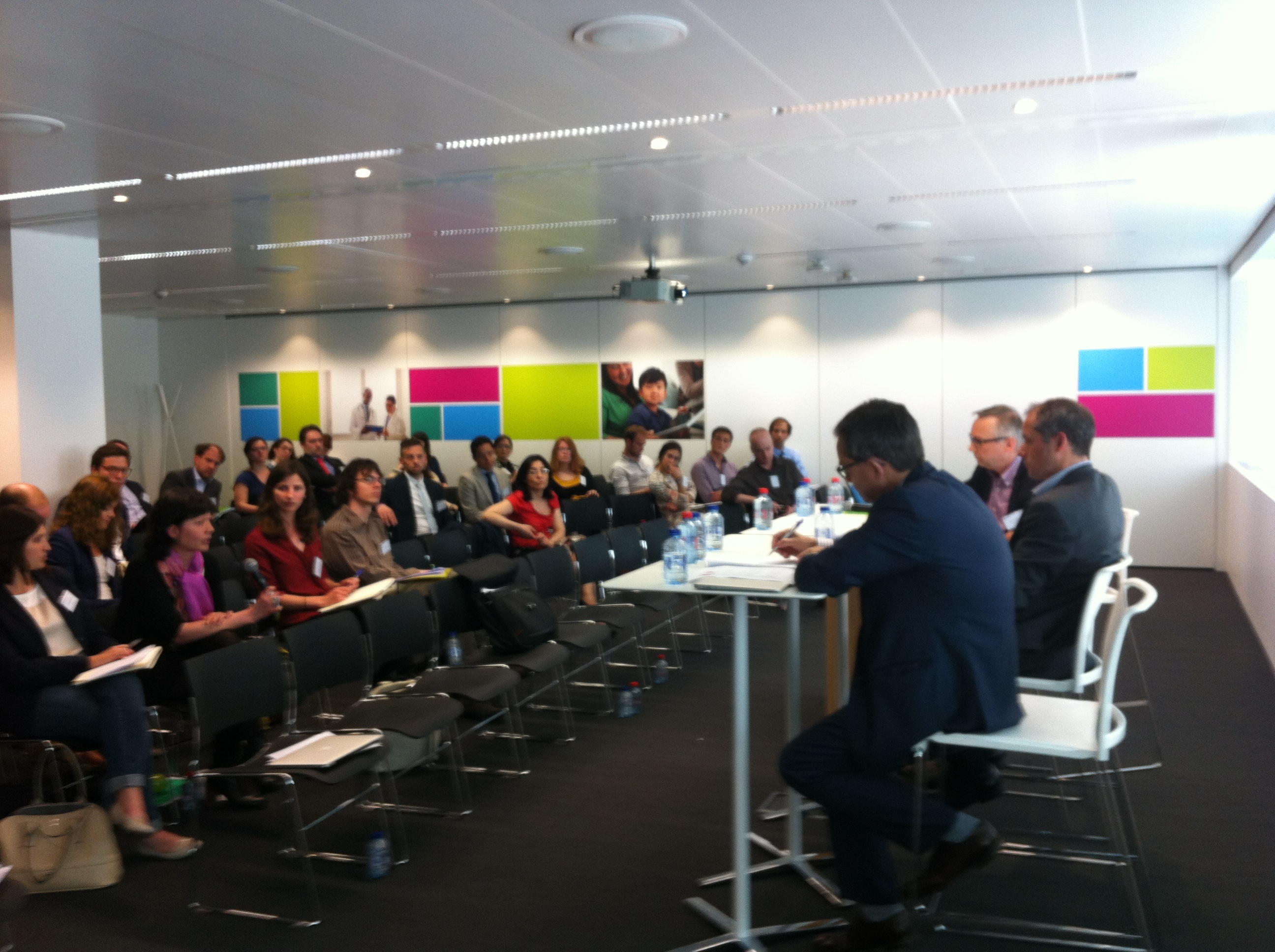
On May 13, 2016, the editors of IPdigIT organized a one-day conference to study the growing importance of ‘Big data in the platform economy‘. To this end, they assembled a panel of experts from several disciplines: applied mathematics, engineering, economics, management, policy-making, and law. (You can find the general description of the conference here). The conference, held in the premises of the Microsoft Innovation Center in Brussels (whose efficient and kind support is gratefully acknowledged) was a real success, according to the feedback we received from numerous participants.
In this post, we give you a short summary of the various presentations made during the day; we also give you access to the speakers’ slides.
Session 1. Big data, engineers, and analysts
The aim of the first session was to address the following questions: What is Big Data? What are the data analytics tools? What are the risks?
1. Gautier Krings (Chief Scientist at Real Impact Analytics and invited lecturer at UCLouvain) described the multiple facets of big data, from the technical challenges to the practical applications (Slides).
2. Rudy Van Hoe (Solution Sales Manager at Microsoft) presented Microsoft’s advanced analytics solutions, and told us that even cows can generate useful big data once they are properly connected! (Slides)
3. Julien Hendrickx (Assistant Professor and chair of the Department of Mathematical Engineering at UCLouvain) explained that even ‘safe-looking’ datasets may lead to privacy risks when they are combined. (Slides)

Session 2. Big data, economists, and managers
In this second session, the speakers addressed the following questions: How, and to what purpose, do organizations exploit big data?
4. Pierre-Nicolas Schwab (Big Data / CRM manager at RTBF, researcher at Solvay Business School, and the founder of IntoTheMinds) described the trends and challenges of the big data business, with a focus on marketing applications. You can view his Prezi presentation here.
5. Wouter Vergote (Associate Professor in Economics at University Saint-Louis, Brussels) explained how big data can facilitate differential pricing and examined the pros and cons for consumers. (Slides)
6. Adeline Decuyper (Post-doctoral fellow in Geography at CORE, UCLouvain) showed how mobile phone data can support development programs; for instance, mobile phone data can help improve food security in Africa. (Slides)

Session 3. Big data and competition lawyers
We started the afternoon with a session examining the role for personal data and big data in the regulation by competition law.
7. Cyril Ritter (Lawyer for the European Commission’s DG Competition) discussed the implications of big data for competition policy. He argued that the issue is not so much about data per se but about how data is used.
8. Inge Graef (PhD fellow at CITIP, KULeuven) pursued on the topic of data and competition law. She examined whether a ‘market for data’ should be defined and, if yes, how. (Slides)
9. Alexandre de Streel (Professor of European law at the University of Namur, and director of CRIDS and CERRE) argued that competition policy must be a complement, not a substitute, for consumer and privacy protection. (Slides)

Session 4 – Big data and regulators
The final session aimed to address the following question: Is there a need to adjust intellectual property and data protection rules in the era of big Data?
10. Benoît Michaux (Partner with Hoyng Rokh Monegier, associate professor of IP law at the University of Namur and a Cepani arbitrator for domain-name disputes) made the connection between big data and copyright and database protection, talking about the scope of and the exceptions to these rights.
11. Christian D’Cunha (Assistant to the EDPS, European Data Protection Supervisor) presented and discussed the EU General Data Protection Regulation. (Slides)


